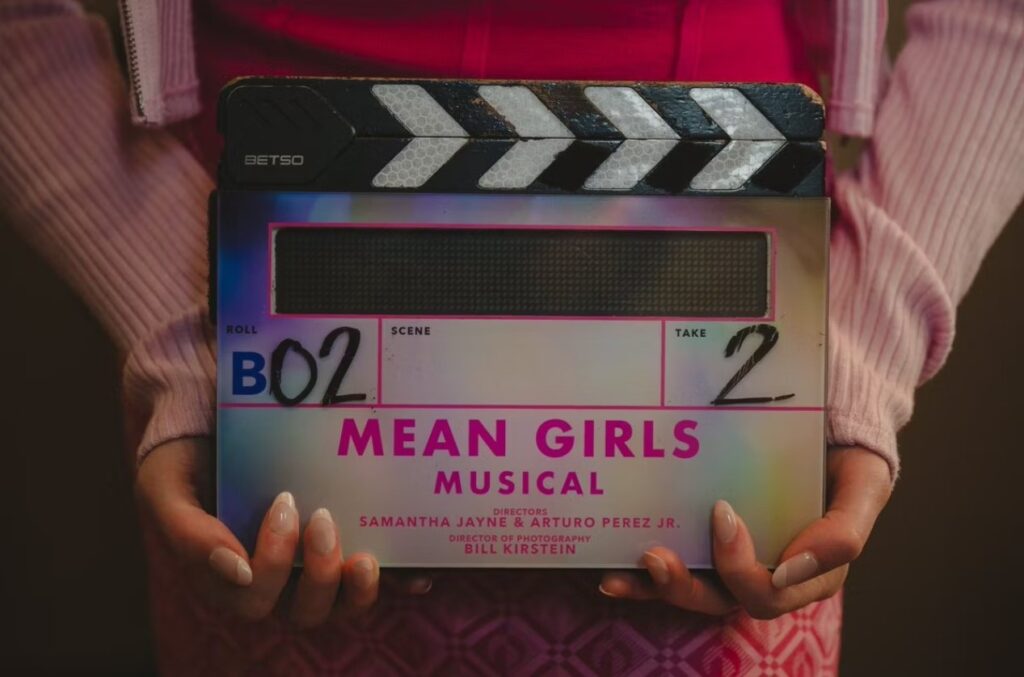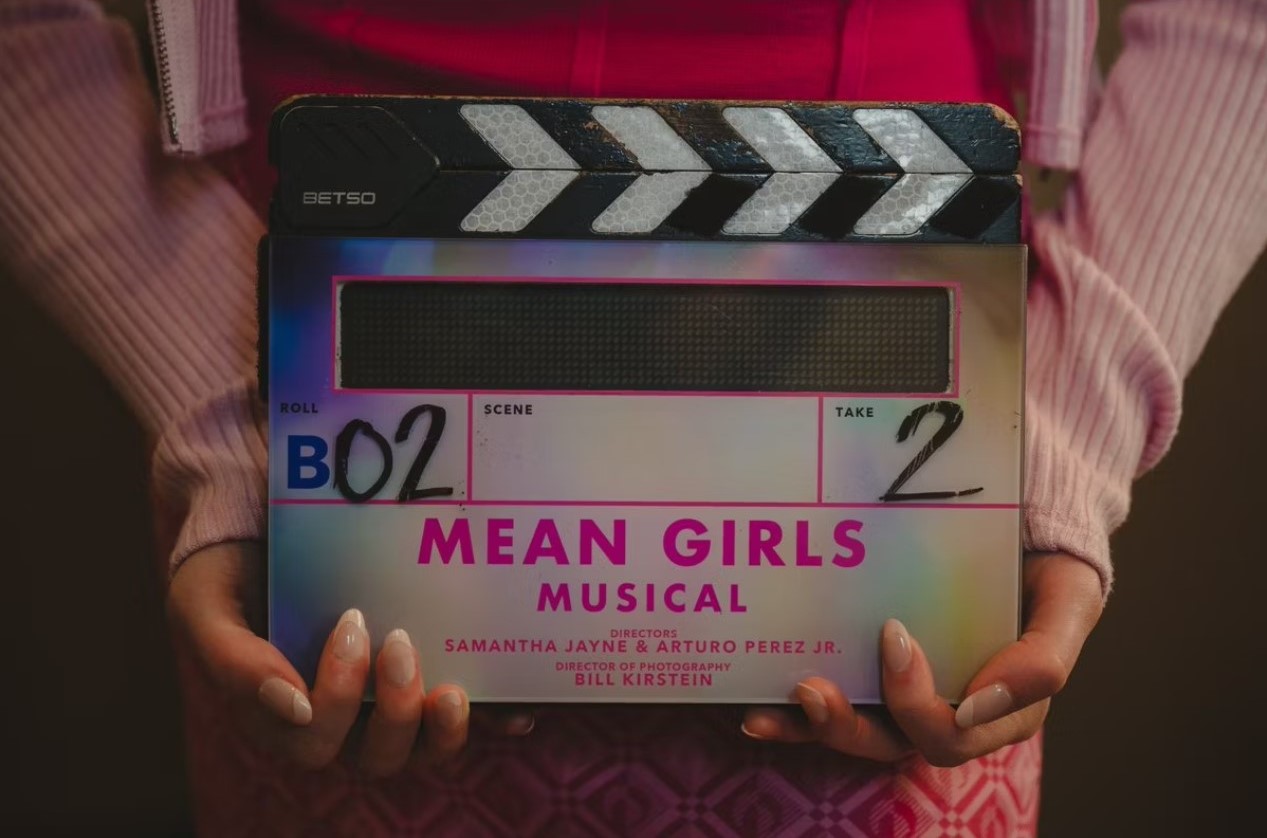Earlier this autumn, cinema-going Swifties were surprised with a sneak peek of the Mean Girls musical movie. As audiences across the US strapped in to watch the musical event of the year, a 30-foot tall Reneé Rapp sauntered onscreen with her signature Regina George smirk. The secret first trailer dropped ahead of screenings of The Eras Tour concert film in October. As Vulture correctly assumes, “the Venn diagram between ‘girls and gays who make friendship bracelets’ and ‘people who want to see the Mean Girls movie musical’ is likely a circle.” This upcoming adaptation of the stage show is one in a long line of musicals being given the movie magic makeover.
Someone being excited about theatre is a wonderful thing.
The recent stage-to-screen transformation trend has two forms. Firstly, there are filmed stage shows, which bring the magic of the theatre into cinemas and homes across the globe. Perhaps the most well-known example is Hamilton. Filmed onstage at the Richard Rodgers Theatre in June 2016, the live capture of Lin-Manuel Miranda’s magnum opus was slated for an October 2021 theatrical release, until COVID-19 reared its disruptive head. Hamilton instead dropped on Disney+ in July 2020, creating another wave of fandom frenzy. The most recent musical to be given the big screen treatment is Waitress. A live stage recording of Sarah Bareilles and Jessie Nelson’s pie-loving musical masterpiece is to be released in theatres across the US this December. Other stage shows that can currently be found on streaming services include Jonathan Larson’s Rent (Prime Video), Stephen Sondheim’s Into the Woods (BroadwayHD), and Andrew Lloyd Webber’s controversial Cats (BroadwayHD).

The second way to bring musicals to the movies is through adaptation. As opposed to simply filming a live performance, this method involves transforming the stories and songs from beloved stage shows into feature films. The most recent example is, of course, Mean Girls, which has gone through several layers of adaptation already. The upcoming musical is an adaptation of the stage show, adapted from the 2004 film of the same name, originally based on Rosalind Wiseman’s 2002 book Queen Bees and Wannabes. It’s hard to keep up, right? Matilda the Musical is another stage-to-screen adaptation which dropped on Netflix earlier this year, starring Emma Thompson as the tyrannical, shoulder-pad-wearing Miss Trunchbull and Lashana Lynch as the sweeter-than-nectar Miss Honey. Other stage musicals to be given a recent cinematic facelift (to varying degrees of success) include Steven Spielberg’s West Side Story, In the Heights, Everybody’s Talking About Jamie, and the utterly unforgivable Dear Evan Hansen.
Live theatre has arguably become an exclusive and elitist activity.
Live theatre has arguably become an exclusive and elitist activity, regulated to middle and upper-class circles. This is partly the result of astronomically high ticket prices, and partly the result of intellectual snobbery which distinguishes between ‘high’ and ‘low’ art. According to a study by The Stage in 2022, top-price West End tickets rose by 21% from 2019 to 2022, jumping up to £140.85 from £116.09. For context, average UK inflation from 2019-2022 was around 12%. Given the current cost of living crisis, it’s not dramatic to say that many theatregoers are being priced out.
It’s not dramatic to say that many theatregoers are being priced out.
While some may argue that watching theatre through a screen (big or little) destroys the magic of live stage shows, I would argue that it simply pulls back the exclusive curtains, allowing everyone to experience the magic. How many teenagers in their bedrooms were introduced to the joy of musical theatre after Hamilton dropped on streaming services? Shouldn’t we be encouraging that excitement, in whatever form it may take? It’s true: live theatre does hold a special kind of magic, and we should support local theatre whenever possible. But, until tickets are priced fairly, filmed theatre should be embraced and encouraged. At the end of the day, someone being excited about theatre is a wonderful thing. It shouldn’t matter if they paid £400 to sit in the dress circle, or £1.99 to rent the experience on Prime Video.

